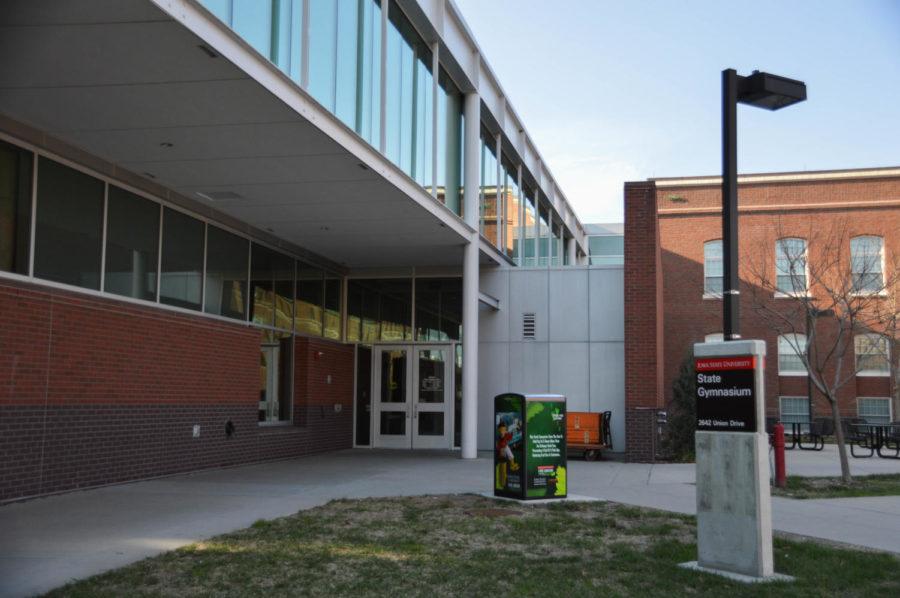Equity and inclusion committee bring inclusion to Iowa State’s rec services
Maddie Leopardo/Iowa State Daily
State Gym is one of 12 buildings on Iowa State’s campus that has received a LEED certification.
November 6, 2018
Even with the implementation of unisex bathrooms and locker rooms at State Gym, some transgender students continue to feel unsafe and intimidated. The Recreation Services Equity and Inclusion committee, aims to turn fear into confidence by eliminating disparities faced by marginalized groups.
Started in the spring of 2018, Recreation Services Equity and Inclusion committee collaborates with marginalized-based student organizations to close disparities in wellness. By collecting data and feedback, Recreation Services Equity and Inclusion committee addresses social barriers that could potentially prevent students from utilizing the Recreation Service’s offerings. Recreation Services Equity and Inclusion committee also provides equity training to student staff for exposure to diversity.
Branden Arends, a senior in kinesiology and founder of Recreation Services Equity and Inclusion committee, said he first experienced discrimination when he was kicked out of the Boy Scouts for being gay. Through his major, he realized it wasn’t uncommon to see discrimination in fitness and wellness. Arends said with a disparity in wellness, marginalized groups could experience shorter lifespans due to chronic heart disease, partially linked to activity.
“The [RSEI] is leading the way in creating an infrastructure that can appropriately support programming and initiatives that aid those facing disparities in wellness due to their identity,” Arends said.
Recently, Recreation Services hosted an LGBTQIA+ stonewall climbing and restorative yoga on Oct. 27, partnering with the Queer Gaynz student group, the Gender Alliance and the Center for LGBTQIA+. It gave LGBTQIA+ students an opportunity to use Recreation Services in an inclusive environment, allowing students to be themselves without fear.
William Walker, co-founder of Queer Gaynz and senior in history and classical studies, recalled several times where he was harassed in the locker rooms about his identity. Walker said it isn’t a rarity for trans students to be approached, causing feelings of wariness and unsafety. Walker partnered with Arends for the event, advising him on the physical limitations trans students may encounter during stonewall climbing and the yoga session.
“I like people who, in health and fitness in general, are dedicated to inclusivity and who care about it,” Walker said.
Another recent feat of Recreation Services Equity and Inclusion committee was the training of student staff on the importance of providing equality at Recreation Services. In the future, Arends hopes to expand training to cover more topics as the committee’s participation grows.
Ryan True, a senior in kinesiology and the chair of rec services department for the student health and wellness ambassadors, said Recreation Services Equity and Inclusion committee gave him more exposure to diversity. Before Recreation Services Equity and Inclusion committee, True said Recreation Services had good intentions to create an inclusive environment, but no real tangible action was taken. Now, True finally sees action being taken.
“I think the formation of this committee, the endorsement of this committee and the ambassadors as well, I think it really shows that we’re really getting serious about it,” True said. “We do want to be innovative, inclusive and welcoming to all students.”
The committee is not limited to one student group. Arends said Recreation Services Equity and Inclusion committee plans to partner with other student organizations in the future. For now, Arends and True hope to collect more data and feedback from students who have experiences, concerns or comments about Recreation Services.
Students interested in providing feedback can click on the student health and wellness ambassadors link under the student organization webpage. Students can also join the Gender Alliance under the student organization webpage.







